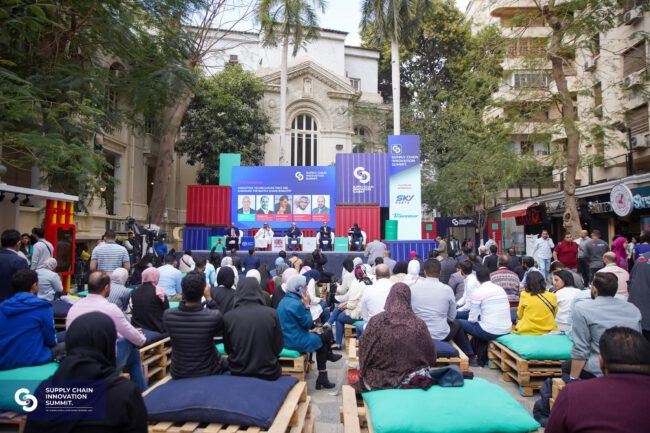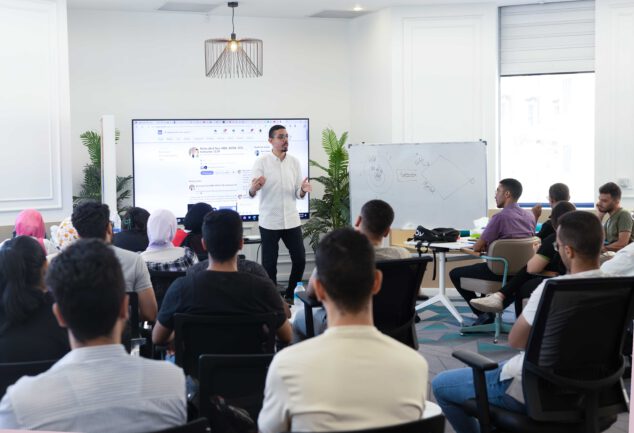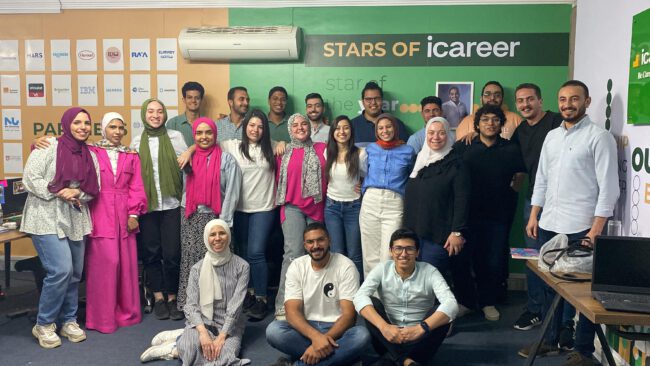The Problem
Egypt is grappling with alarming rates of youth unemployment, which pose significant economic and social challenges. According to the International Labour Organization (ILO), the unemployment rate among university graduates was 34% in 2017, highlighting a critical disconnect between higher education and the labour market. The situation has worsened, with the unemployment rate among youth aged 15-29 soaring to a staggering 61.3% in the second quarter of 2022. Moreover, young women face even greater hurdles, with university-educated women being five times more likely to be unemployed than their male counterparts (Population Council, 2012), further emphasizing the gender disparity in the job market. The cumulative effect of these issues not only stifles the potential of Egypt’s youth but also hampers the country’s economic growth and development.
Moreover, a significant skills gap in Egypt’s labour market is a pressing issue, with employers finding it increasingly difficult to recruit suitable talents due to a shortage of skilled candidates. Despite the large number of young job seekers, there is a disconnect between the skills imparted through education and those demanded by the job market. This mismatch means that even as companies face critical hiring needs, many positions remain unfilled due to the inadequacy of the available talent pool. Consequently, young people struggle to find employment that matches their qualifications and aspirations, exacerbating the high rates of youth unemployment. These skills gap not only stifles individual career growth but also impedes economic development by hindering businesses’ ability to innovate and expand.
Finally, Egypt faces a critical shortfall in providing adequate market-driven content and technological infrastructure for Universities’ Career Centres, which significantly hampers their ability to manage effective career services. This inadequacy leaves students and graduates ill-prepared for the workforce, as the guidance and resources they receive do not align with the evolving demands of the job market. The lack of modern technological tools prevents career centres from offering efficient, personalized support and tracking the progress of job seekers. Consequently, graduates enter the labour market with skills and knowledge that are not aligned with employer expectations, exacerbating the youth unemployment crisis. This disconnect not only undermines the potential of young talents but also frustrates employers who struggle to find candidates with the necessary skills, thereby stifling economic growth and innovation.
The Solution
Introducing the First Virtual Career Centre (VCC) in the MENA Region
The VCC is a one-stop shop that connects job seekers, employers, and several direct and indirect employment stakeholders, like universities’ career centres, governmental ministries, labour offices, and development organizations in one ultimate server that covers diverse horizons:
- VCC as a Comprehensive Module: It includes Learning Management Module, Customer Relationship Management Module, Events Management Module, Job Board & Applicant Tracking Module, Service Booking Module, Assessment, and Career Knowledge Base.
- Partnerships and Integration: Integrating the system with 27 regional labour offices to help them streamline and improve their hiring process efficiently and with higher quality. Providing the VCC to 42 university career centres to help them track their students, observe, and encourage their job-hunting journeys. Ensuring widespread accessibility and collaboration.
- Digital Career Guidance, Employability Training, and Job Matching: The VCC offers digital career guidance, training to 20,000 youth on career education topics and offering career guides developed by companies, customized courses, and one-to-one career coaching sessions to enhance job matching.
- On-ground Activation Activities: Organizing 4 career summits and 6 direct-employment events, delivering training programs, and upgrading educational content.
- Employer Network and Job Opportunities: Acquiring a network of 1,000 companies to provide job opportunities, making 50,000 jobs available on the VCC, and matching 12,000 youth with decent job opportunities.
- Supporting Women’s Employment: Aiming for 70% of the employment interventions to target women, creating 8,400 jobs for young women out of the planned 12,000 jobs.
Additionality
CFYE funding will be vital in upgrading the VCC to provide better and more affordable recruitment solutions and reaching up to 27 labour offices and 42 universities career centres in various cities in Egypt. With the help of CFYE, iCareer will be able to acquire 20,000 youth for employability training and 1,000 new employers to join their VCC, thus creating 100 jobs within iCareer, and matching 11,900 youth with decent job opportunities, reaching a total number of 10,000 direct beneficiaries. Additionally, iCareer will be availing 50,000 jobs on VCC by top employers in the market and achieve capacity building by hiring 100 new team members across various departments to ensure smooth operations and expansion of the VCC. Moreover, iCareer will be able to enhance the current Applicant Tracking module and add AI features for better matchmaking and tracking processes, providing a more streamlined experience for both job seekers and employers. Finally, CFYE support will make adding more educational content to the VCC and developing Arabic content that caters to the needs and cultural preferences of the local population possible.



